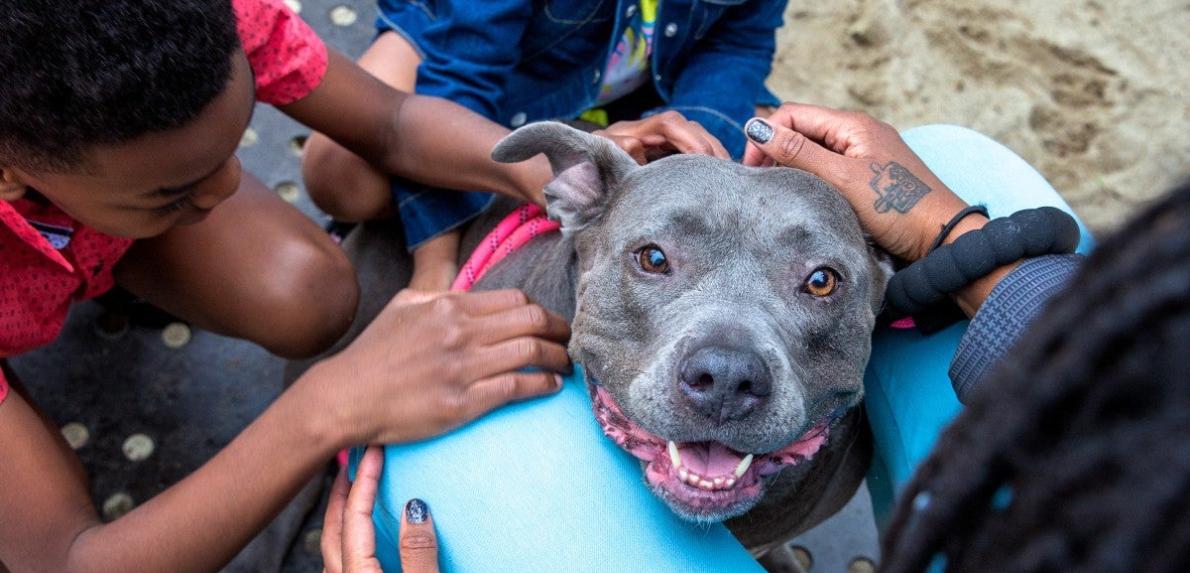New Dog Breed Study Could Have Far-Reaching Impacts in Animal Welfare, According to Best Friends Animal Society

VISUAL ASSETS: B-ROLL and PHOTOS
On April 28, a new study published in Science by Kathleen Morrill, a dog geneticist at the University of Massachusetts Chan Medical School, and her colleagues showed that predicting dog behaviors was not based on breed, but rather inherited genes. Not one single behavior stereotype, such as howling in beagles, was exhibited in all dogs of a certain breed. Better indicators for certain behaviors (though not most of them) are a dog’s sex and age.
“This is such exciting news. Best Friends Animal Society has been saying for decades that all dogs are individuals and this study further proves it,” said Julie Castle, CEO of Best Friends Animal Society. “These findings could have far-reaching positive impacts in animal welfare, whether it’s increasing adoptions of large-breed dogs to helping families with dogs find housing more easily to ending breed-based restrictions in communities.”
The animal welfare organization proved its commitment to the “all dogs are individuals” philosophy in 2007. When other groups were pushing for euthanasia of the dogs rescued from Michael Vick’s busted dogfighting ring, Best Friends agreed to take in as many as allowed (ultimately 22) to rehab or give a permanent place to live. Renamed "the Vicktory Dogs”, many went on to find loving homes.
“The Vicktory dogs are a prime example of how we should never judge a dog by its looks,” Castle said. “The study’s findings could be especially positive for pit bull type dogs, Rottweilers, Dobermans, German Shepherds, and Chows, which often have an unfair stigma attached to their breed.”
Another finding of the study showed that more than half of the 18,385 owners cited had a mixed breed or “mutt,” which are plentiful at shelters.
"Whether it’s a mixed breed or a purebred, our message is to give adoptable dogs a chance based on their personality, not their physical characteristics. The most important criterion is whether a dog is a good match for your lifestyle,” Castle said. “Shelters and rescue groups are experts at helping facilitate matches, so we encourage potential adopters to really consider every kind of dog when looking for a new best friend to bring home.”
Best Friends Animal Society has also taken on issues such as ending breed-based restrictions by government-funded housing authorities across the country and ending insurance companies’ use of dog breed as criteria to reject or deny a homeowner’s coverage.
“Putting an end to these outdated policies will help remove the barriers for families who own big dogs or are looking to adopt,” Castle said. “This study can help shelters find great homes for dogs, as well as prevent families from having to surrender their beloved pet.”
About Best Friends Animal Society
Best Friends Animal Society is a leading animal welfare organization working to end the killing of dogs and cats in America’s shelters by 2025. Founded in 1984, Best Friends is a pioneer in the no-kill movement and has helped reduce the number of animals killed in shelters from an estimated 17 million per year to about 347,000. Best Friends runs lifesaving programs all across the country, as well as the nation’s largest no-kill animal sanctuary. Working collaboratively with a network of more than 3,300 animal welfare and shelter partners, and community members nationwide, Best Friends is working to Save Them All®. For more information, visit bestfriends.org.